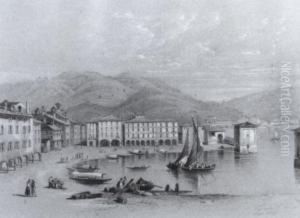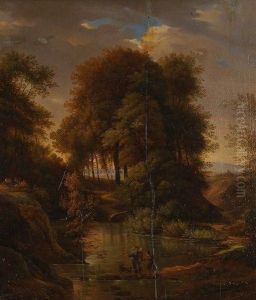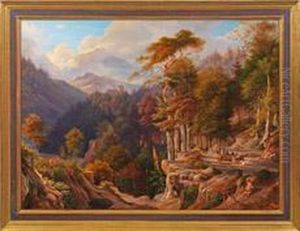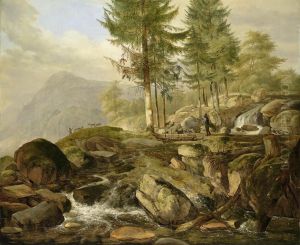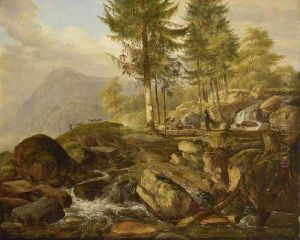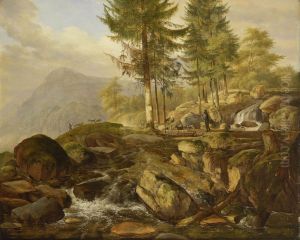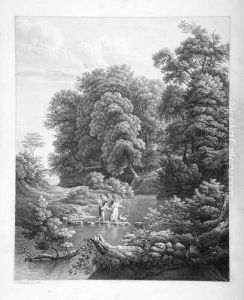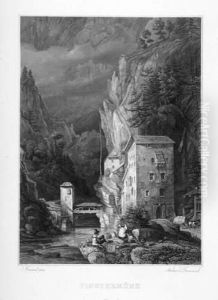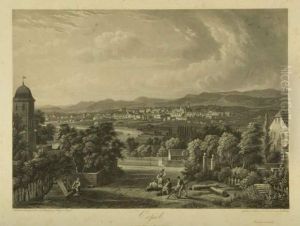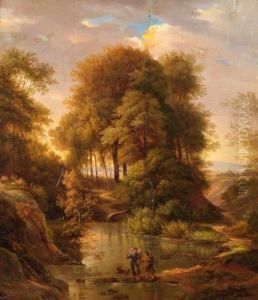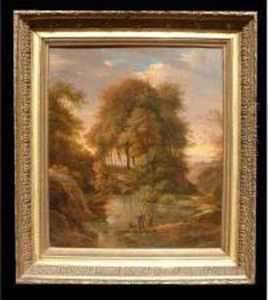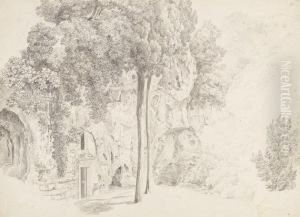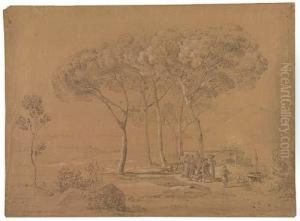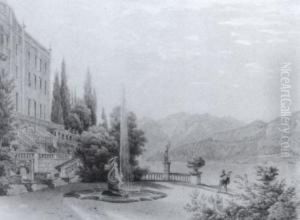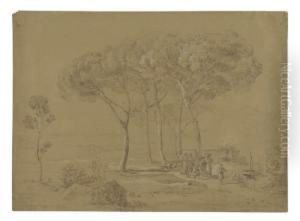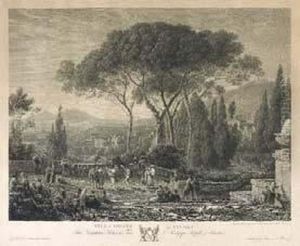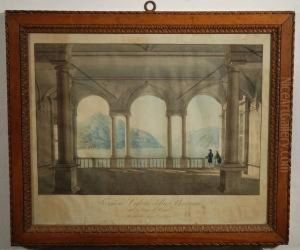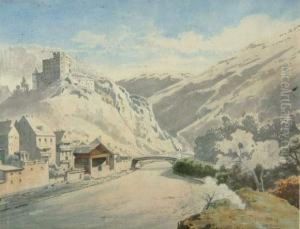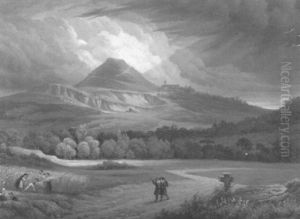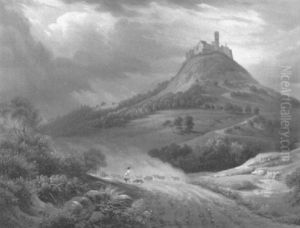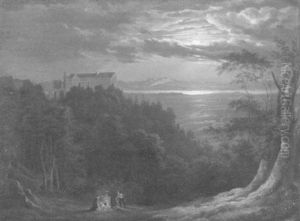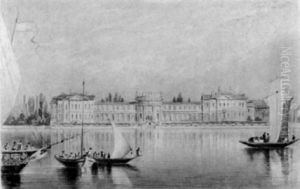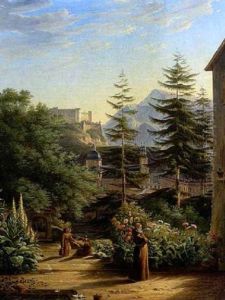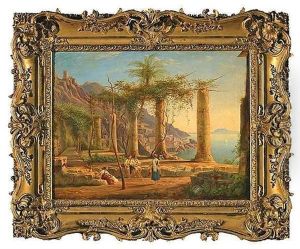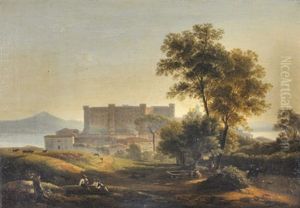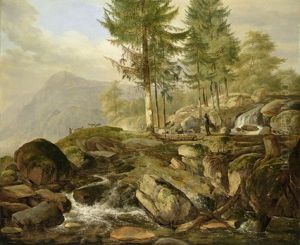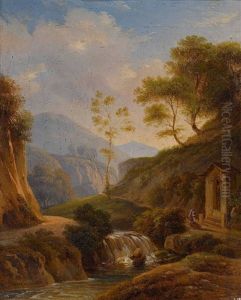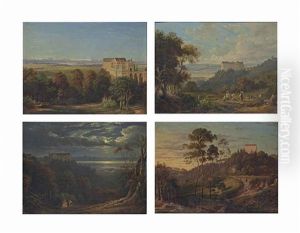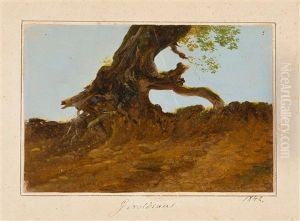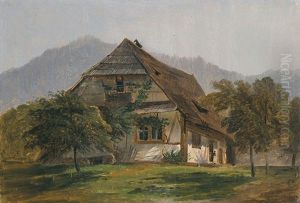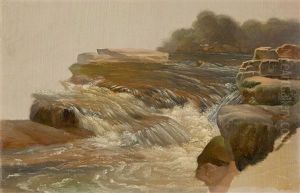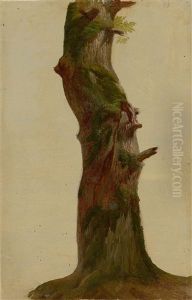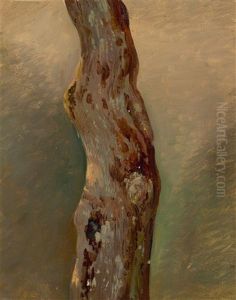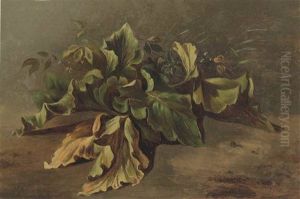Carl Ludwig Frommel Paintings
Carl Ludwig Frommel was a German painter, engraver, and art professor born on August 26, 1789, in Birkenfeld, Germany. Frommel was primarily known for his landscape paintings and his contributions to the world of printmaking. He was part of the Romantic movement in Germany, a period that emphasized emotion and individualism as well as glorification of all the past and nature.
Frommel's artistic journey began under the mentorship of his uncle, Christian Haldenwang, who was an accomplished engraver. He further developed his skills at the Academy of Fine Arts, Karlsruhe, where he studied under the directorship of Friedrich Weinbrenner. Frommel quickly earned recognition for his landscape engravings and became a professor at the academy, where he profoundly influenced the artistic and cultural scene of the time.
In 1819, he embarked on a study trip to Italy, which greatly impacted his work. The Italian countryside and its classical ruins became a central theme in many of Frommel's pieces. His Italian landscapes were characterized by meticulous attention to detail and a harmonious interplay of light and shadow, which brought him considerable fame.
Upon his return to Germany, Frommel continued to teach while working on his engravings and paintings. He became the director of the art gallery in Karlsruhe and later the director of the Grand Ducal Picture Gallery, positions that allowed him to shape the art collections and influence the artistic taste of the region.
Carl Ludwig Frommel's legacy is that of a dedicated artist and educator who played a significant role in the Romantic movement in Germany. His works are preserved in several institutions, and his influence can still be felt in the printmaking and landscape painting traditions. Frommel passed away on December 15, 1863, in Karlsruhe, leaving behind a body of work that continues to be appreciated for its beauty and historical value.
